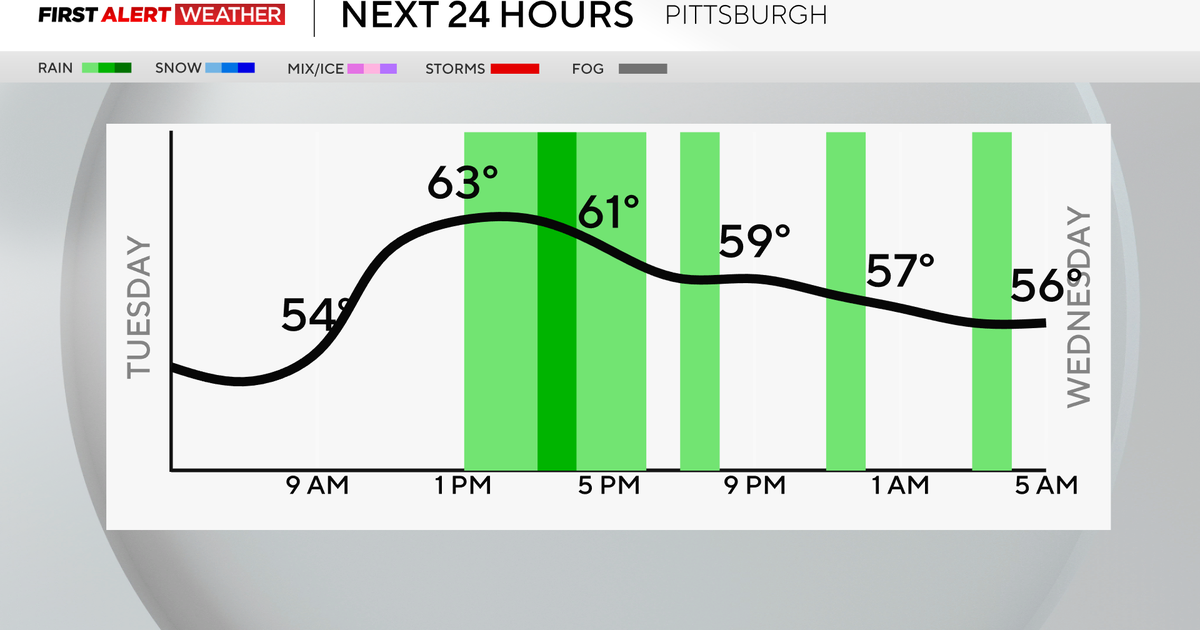Kidsburgh: US surgeon general warns of devastating mental health crisis among adolescents
PITTSBURGH (KDKA) - Parents' biggest worries about teenagers used to be about teenage drunk driving, teen pregnancy and smoking, but while those have fallen sharply, there's a new concern – mental health problems.
The U.S. surgeon general warns there's a devastating mental health crisis among adolescents.
For Brooke Kramer and Andrew Butch, the pandemic was more than difficult: it took a toll on their mental health.
Brooke was a student at Upper St. Clair High School when the pandemic started, and she suffered anxiety attacks two to three times a week.
"Shortness of breath, I was crying. It literally felt like I was just done and over with," she told KDKA's Kristine Sorensen. "Anybody that's ever had a panic or anxiety attack, it feels like you're gonna die."
Andrew, who's a student at Central Catholic High School, suffered depression after the pandemic isolated him from his friends and much of his family to the point he thought about suicide.
"There was no point for me to get up and do anything really. I had no incentive. I had no reason to do anything and I just kind of (became) a recluse," he told Kristine. "I would just think about stuff. I don't know. I would just end up in a dark place kind of, and I just didn't want to be in that place anymore."
Andrew and Brooke say the talk therapy at Outreach Teen and Family Services in Mount Lebanon helped them manage their mental health problems.
Tracy Scanlon, clinical director at Outreach Teen and Family Services, says calls dramatically increased during the pandemic.
"I think parents got really aware, suddenly, of how fragile their teenagers might actually be. Because I think in our culture, what we typically say is 'kids are resilient, kids are resilient,' and their resilience was really tested," Scanlon said.
Even before the pandemic in 2019, 13% of adolescents reported having a major depressive episode – up by 60% since 2007.
But the pandemic helped reduce the stigma.
"Me and my friends, I feel like we're more comfortable with each other. I would say we're more open about how we're feeling and that's a really good feeling," Andrew said.
"At the end of the day, we need to help each other through tough times.... You shouldn't have to feel alone in your own mental health," Brooke added.
"Suddenly, the adults around us seem to be more willing to recognize that everybody isn't supposed to just be able to pick themselves up by the bootstraps and move on," Scanlon said.
The hope is more people will view mental health like physical health with no shame in getting treatment. Andrew encourages other teenagers, children or anyone facing depression or other mental health challenges to seek help.
"Even if it's hard, you have to accept that that's the only way you're gonna get through it, is if you accept the fact that you're depressed and you do have these mental health issues and recognize that you do need help," he said.
Here are some signs parents can look for when it's time to get professional help. Look for isolation, withdrawal, pulling away from friends, more crying or emoting than normal. If this goes on for three or four weeks, ask for help. You can get it at Outreach or other professional counseling services or you can start with your pediatrician or school counselor.
Kidsburgh's Mental Health Guide has many resources and places to get professional help. You can learn more about Outreach Teen and Family Services on their website.




